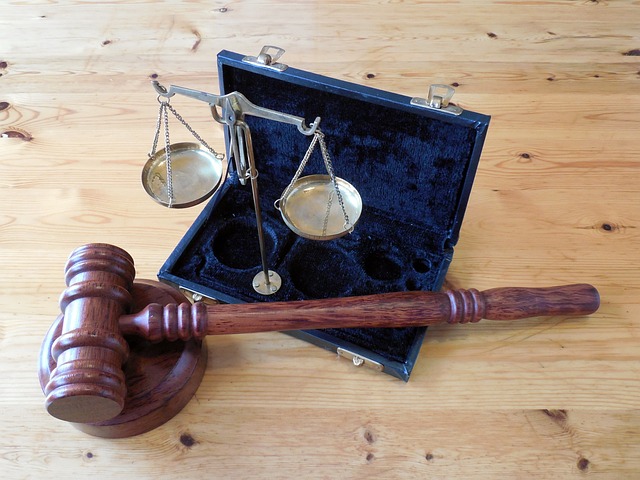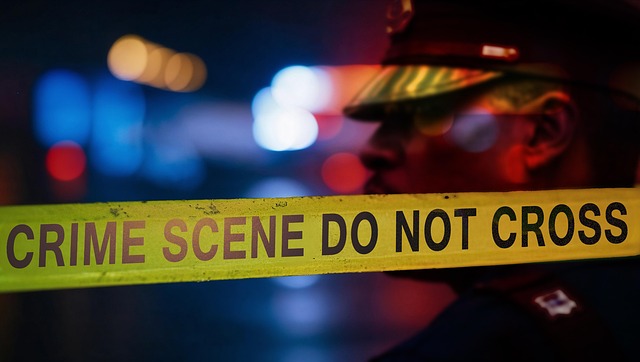Crime probes in finance detect and prevent illegal activities, using advanced analytics and international collaboration. The process involves intelligence gathering, interviews, record analysis, and evidence evaluation by prosecutors. Effective Criminal Trial Jury Selection Strategies are vital for fair outcomes, focusing on understanding juror biases, experiences, and knowledge to select an impartial panel. Skilled questioning during voir dire is key, ensuring jurors can set aside personal prejudices and base decisions on evidence. This strategy is crucial in high-stakes financial crime trials, where it shapes the jury dynamic in favor of a fair verdict.
“Uncovering the intricate world of finance crime probes, this article offers an in-depth look at crucial aspects of jury selection for criminal trials. From understanding the fundamental elements that constitute a successful probe to employing effective questioning techniques, we explore strategies that ensure a fair and impartial jury.
Delve into key factors, case studies, and expert tips on mitigating bias during selection, all designed to optimize outcomes in high-profile finance cases. Discover proven criminal trial jury selection strategies for optimal justice.”
- Understanding Finance Crime Probes: A Comprehensive Overview
- Key Elements in Selecting Criminal Trial Jurors
- Effective Questioning Techniques for Jury Selection
- Mitigating Bias: Ensuring a Fair and Impartial Jury
- Case Studies: Successful Jury Selection Strategies in High-Profile Finance Cases
Understanding Finance Crime Probes: A Comprehensive Overview
In the intricate world of finance, crime probes serve as a critical mechanism to uncover and deter illicit activities that threaten economic integrity. These investigations encompass a wide range of financial crimes, from fraud and money laundering to corruption and insider trading. Understanding the intricacies of these probes is essential for both legal professionals and members of the philanthropic and political communities alike. By employing sophisticated strategies, such as leveraging advanced analytics and international cooperation, investigators aim to gather compelling evidence, ensuring the accuracy and fairness of potential jury trials.
The process involves meticulous planning and execution, beginning with gathering intelligence, conducting interviews, and analyzing financial records. Once sufficient evidence is secured, prosecutors must decide whether to pursue a trial or consider alternative resolutions. In many cases, well-crafted Criminal Trial Jury Selection Strategies can significantly impact the outcome. A successful probe not only leads to the punishment of culprits but also strengthens regulatory frameworks, instilling public confidence in the fairness and transparency of financial markets. Moreover, the results often serve as deterrents, discouraging future perpetrators from engaging in similar illicit activities.
Key Elements in Selecting Criminal Trial Jurors
Selecting the right criminal trial jurors is a meticulous process that significantly influences the outcome of cases, especially in complex financial matters such as white-collar and economic crimes. Effective Criminal Trial Jury Selection Strategies involve a deep understanding of potential biases, life experiences, and knowledge relevant to the case. Jurors must possess the ability to set aside personal prejudices and remain impartial when evaluating evidence.
The process entails thorough questioning by both attorneys to uncover nuances that could impact decision-making. This includes gauging their familiarity with legal concepts, assessing past experiences related to similar cases, and determining if any preconceived notions might interfere with their ability to render a just verdict. The goal is to secure a jury that can approach the case objectively, ensuring a fair trial for all involved, even in scenarios where a complete dismissal of all charges is at stake for his clients.
Effective Questioning Techniques for Jury Selection
Effective questioning during jury selection is a crucial strategy for successful criminal trials. It involves a delicate balance between gathering essential information and steering clear of prejudicial remarks. Lawyers employ various techniques to uncover potential biases, ensure impartiality, and gauge prospective jurors’ understanding of legal concepts. This process, known as voir dire, aims to select an unbiased panel capable of evaluating evidence objectively.
A key technique is asking open-ended questions that encourage detailed responses, allowing attorneys to assess each juror’s perspective. For instance, questioning about their experiences with law enforcement or previous jury duties can reveal insights into their views on the respective business of justice. This comprehensive approach, considering all stages of the investigative and enforcement process, is vital for choosing a fair and impartial jury, ultimately advocating for his clients’ best interests.
Mitigating Bias: Ensuring a Fair and Impartial Jury
Ensuring a fair and impartial jury is paramount during criminal trials, especially in the realm of white-collar and economic crimes. Jury selection strategies play a crucial role in mitigating bias, as the process must identify individuals who can set aside personal prejudices and render a verdict based solely on the presented evidence. This meticulous approach is vital to upholding justice and achieving winning challenging defense verdicts in white-collar defense cases.
Attorneys and judges employ various techniques during jury selection, such as thorough questioning and strike challenges, to uncover potential biases or preconceived notions. By delving into the background and experiences of prospective jurors, it becomes possible to identify those who might be more susceptible to specific types of evidence or arguments, thereby ensuring a balanced panel. This strategy not only safeguards against unfair trials but also strengthens the integrity of the criminal justice system as a whole.
Case Studies: Successful Jury Selection Strategies in High-Profile Finance Cases
In the high-stakes world of finance crime probes, effective jury selection strategies can be the difference between a guilty verdict and an acquittal. Case studies reveal that successful defense attorneys employ intricate tactics to ensure their clients receive fair trials. One proven approach is to thoroughly vet potential jurors through comprehensive questioning, identifying biases and pre-conceptions related to financial cases. This process allows for the exclusion of individuals who may unconsciously favor corporate or individual clients, ensuring a balanced jury.
Additionally, strategic challenges for cause and peremptory challenges play a pivotal role. Attorneys selectively strike jurors who might lean towards winning challenging defense verdicts, aiming to create an impartial panel. By combining insightful questioning with tactical challenges, defense counsel can shape the jury dynamic, ultimately advocating for their clients’ interests. This meticulous approach underscores the importance of skilled jury selection in securing positive outcomes, even in complex financial cases.
Finance crime probes require meticulous jury selection strategies to ensure justice is served. By understanding the key elements and employing effective questioning techniques, attorneys can mitigate bias and select a fair criminal trial jury. The case studies presented highlight successful approaches in high-profile finance cases, offering valuable insights for navigating complex jury selection in such investigations. Implementing these strategies can significantly impact the outcome of trials, emphasizing the critical role of criminal trial jury selection strategies in the pursuit of justice.






